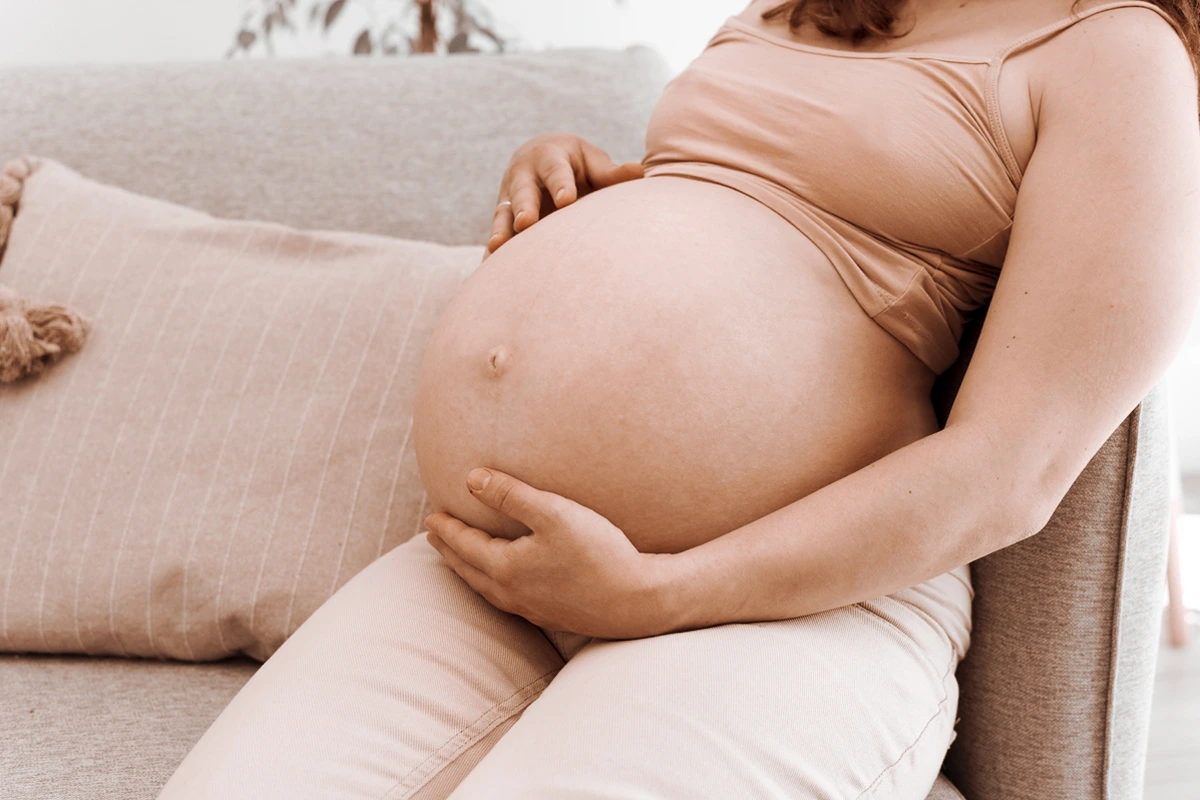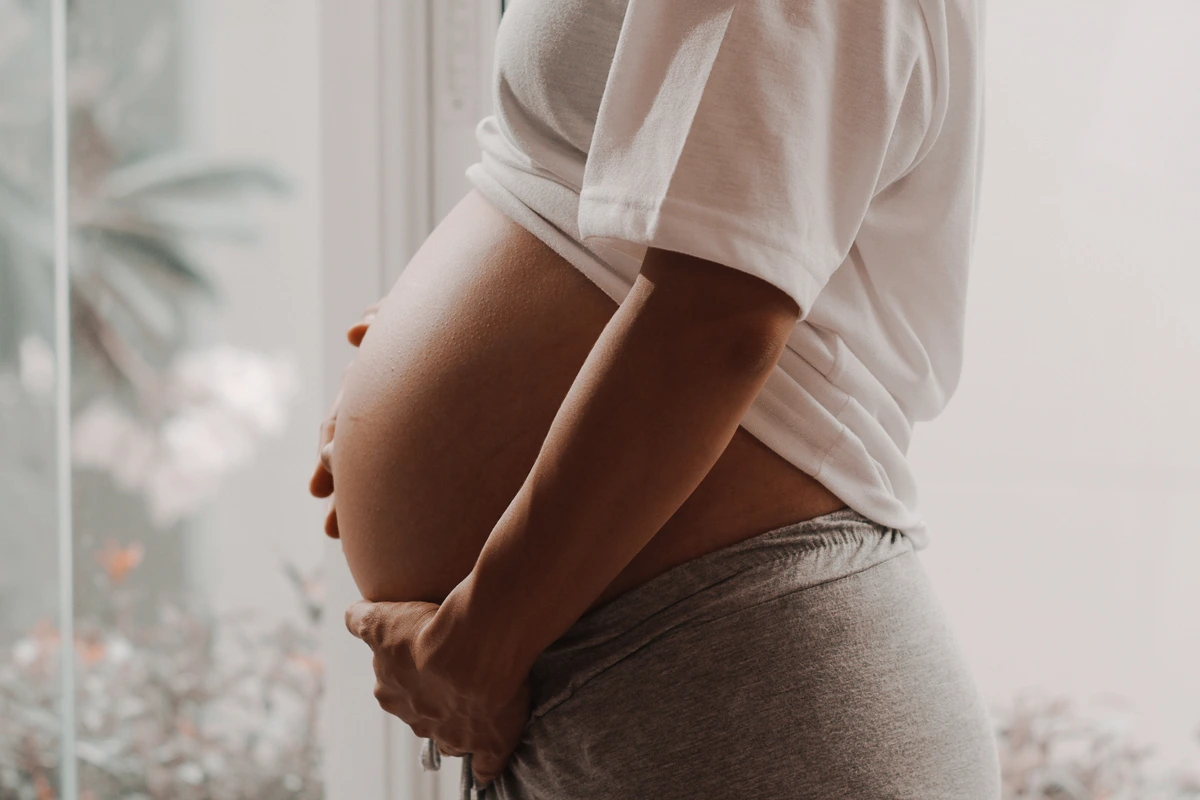The third trimester of pregnancy, spanning from 28 to 40 weeks, marks the final stretch before childbirth. The baby experiences substantial growth during this period, and the body undergoes additional changes in preparation for delivery. Expectant mothers may feel a range of physical and emotional adjustments. The baby’s movements become more noticeable, and their position in the womb may be a key consideration. As the due date approaches, Braxton Hicks’s contractions may increase, providing practice for the upcoming labor. Some women may experience nesting instincts, a sudden burst of energy prompting them to prepare for the baby’s arrival. Mothers must continue regular prenatal check-ups, monitor the baby’s movements, and discuss any concerns with healthcare providers. Adequate rest, proper nutrition, and emotional well-being become paramount during this final trimester. The anticipation of meeting the newborn and the final preparations for childbirth create a mix of excitement and readiness for the next chapter of parenthood.
Table of Contents
ToggleBaby’s development in the third trimester
In the third trimester of pregnancy, spanning from 28 to 40 weeks, the baby undergoes crucial development as they prepare for life outside the womb. During this period:
- Rapid Growth. The baby experiences significant growth, gaining weight, and developing fat stores necessary for temperature regulation.
- Organ Maturation. Organs such as the lungs, liver, and brain continue to mature, enhancing the baby’s ability to function independently.
- Bone Development. Bones harden, and the skeleton becomes more resilient, supporting the baby’s overall structure.
- Practice Breathing Movements. The baby practices breathing movements, helping to strengthen respiratory muscles in preparation for breathing air.
- Sensory Development. Senses like hearing and sight are further refined, allowing the baby to respond to external stimuli.
- Positioning. The baby often moves into a head-down position, preparing for the optimal birthing position.
- Increased Fetal Movements. Movements may become more pronounced as the baby has less space, reassuringly showing their well-being.
- Nesting Instinct. Some mothers may experience a “nesting” instinct, an urge to prepare for the baby’s arrival by organizing and cleaning.
- Braxton Hicks Contractions. Practice contractions, known as Braxton Hicks contractions, may become more noticeable as the body readies itself for labor.
- Amniotic Fluid Levels. Amniotic fluid levels remain crucial for cushioning the baby and facilitating movement.
Throughout the third trimester, regular prenatal check-ups are essential to monitor the baby’s well-being and address any concerns. As the due date approaches, expectant mothers should focus on self-care, including sufficient rest, proper nutrition, and emotional well-being, to ensure a healthy and smooth transition into labor and delivery.
What are the things to consider for the third trimester
During the third trimester, there are several important aspects to consider for both the mother and the baby.
Monitor your baby’s movements
- Pay attention to your baby’s kicks, twitches, and rolls, and inform your healthcare provider if you notice a decrease in movement
Health and well-being
- Continue taking prenatal vitamins, staying active (unless experiencing swelling or pain), and doing Kegel exercises. Rest and manage stress levels to ensure the best possible health for both you and your baby
Medical and prenatal care
- Attend regular prenatal appointments, complete third-trimester prenatal visits and tests, and discuss your birth plan with your healthcare provider. You may also have a Group B strep test during this period
Nursery and baby preparation
- Finish the nursery, install the infant car seat, and prepare a baby first aid kit. Wash baby’s clothes with newborn laundry detergent and ensure that any baby items you need are purchased
Social and practical preparation
- Attend baby showers, send thank-you notes, and cook and freeze meals for after delivery. Line up postpartum help and support, and consider taking a childbirth and breastfeeding class
Self-care and relaxation
- Enjoy this special time, get rest, and take excellent care of yourself. Lean on others for help, as the third trimester can be physically and emotionally challenging for a pregnant woman
What can you expect in the third trimester
During the third trimester of pregnancy, spanning from 28 to 40 weeks, expectant mothers can anticipate a series of distinct changes and experiences as they approach childbirth:
Increased Fetal Movements
- The baby’s movements may become more pronounced as they have less space in the womb, providing reassurance of their well-being.
Physical Discomfort
- Growing discomfort, including back pain, pelvic pressure, and swelling, is common due to the expanding uterus and increased weight.
Braxton Hicks Contractions
- Practice contractions, known as Braxton Hicks contractions, may become more noticeable as the body prepares for labor.
Nesting Instinct
- Some women may experience a surge of energy and a nesting instinct, prompting them to prepare for the baby’s arrival by organizing and cleaning.
Increased Bathroom Trips
- Pressure on the bladder intensifies, leading to more frequent trips to the bathroom.
Preparation for Labor
- The body changes in preparation for labor, including the softening and thinning of the cervix (effacement) and the baby’s descent into the pelvis.
Breast Changes
- Breasts may become larger, and more tender, and may start producing colostrum, the first milk.
Shortness of Breath
- As the uterus expands, it may exert pressure on the diaphragm, leading to occasional shortness of breath.
Pelvic Discomfort
- The baby’s descent into the pelvis may cause increased pressure and discomfort in the pelvic area.
Sleep Challenges
- Discomfort and the need for frequent bathroom trips can disrupt sleep, making it harder to find a comfortable sleeping position.
Emotional Rollercoaster
- Hormonal changes and the anticipation of childbirth and parenthood can contribute to emotional highs and lows.
Preparation for Labor
- Attend childbirth education classes and discuss birthing preferences with healthcare providers to prepare for labor and delivery.
Hospital Bag Preparation
- Pack a hospital bag with essentials for both yourself and the baby.
Regular Prenatal Check-ups
- Continued regular prenatal check-ups to monitor the baby’s well-being and address any concerns.
As the due date approaches, expectant mothers need to prioritize self-care, including proper nutrition, staying hydrated, and seeking support when needed. Open communication with healthcare providers ensures a well-supported journey through the final trimester of pregnancy.
Third Trimester Checklist
The third trimester is a time of final preparations before your baby’s arrival.
Health and Well-being
- Monitor your baby’s movements
- Take care of your physical and emotional well-being
- Rest and keep stress levels in check
Medical and Prenatal Care
- Complete third-trimester prenatal visits and tests
- Start fetal kick counts
- Discuss your birth plan with your healthcare provider
- Take a childbirth class and consider a breastfeeding class
- Wash baby’s clothes with newborn laundry detergent
- Attend doctor’s visits weekly until delivery
Nursery and Baby Preparation
- Finish up the nursery and baby-proof the house
- Install the infant car seat and get it inspected
- Pack your hospital bag
- Pick a pediatrician for your baby
Social and Practical Preparation
- Enjoy your baby shower and write thank-you notes
- Cook and freeze meals for after-delivery
- Line up postpartum help and support
Last Updated on January 15, 2024
Written By
With a solid foundation in family dynamics, child development, and a knack for assessing products, our content is built on a strong grasp of our topics. We use trustworthy sources, seek advice from experts, and stay current with the latest happenings in our fields. We always give credit to our sources, reveal any possible conflicts of interest, and deliver info in a truthful and unbiased way. Follow us on Facebook or join our Facebook Group.
Start your journey to confident parenting
Join over 2,000+ parents who receive free practical advice and tips from Joyful PH. Unsubscribe anytime.
You may also like
Second Trimester Pregnancy (14-27 Weeks)
The second trimester of pregnancy, spanning from 14 to 27 weeks, is often…
First Trimester Pregnancy (0-13 Weeks)
During the first trimester of pregnancy, spanning from 0 to 13 weeks,…
9 Months Pregnancy
In the ninth and final month of pregnancy, the journey comes to its culmination…
8 Months Pregnancy
In the eighth month of pregnancy, the baby is getting ready for birth, and the…
7 Months Pregnancy
During the seventh month of pregnancy, significant milestones occur. The baby's…
6 Months Pregnancy
In the sixth month of pregnancy, significant developments continue as the baby…







